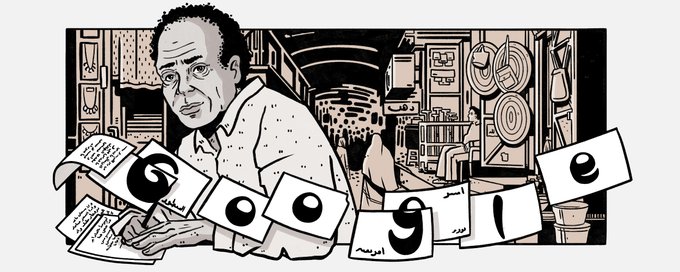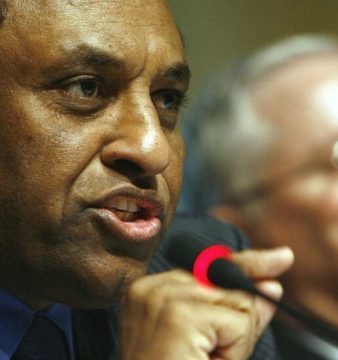Google Doodle Celebrates Sudanese-Libyan Writer Muhammad Al Fayturi

Google Doodle celebrates Sudanese-Libyan writer Muhammed Al Fayturi on 24 November 2021 – on what would have been his 85th birthday. The writer, poet, playwright and ambassador died in Rabat, Morocco in 2015.
Widely revered as a trailblazer for modernist Arabic literature, Sudanese-Libyan poet Muhammad al-Fayturi used mystically-infused verse to explore the collective African identity & the impact of colonialism 🇸🇩#GoogleDoodle 🎨 by @itsnorazeid → https://t.co/X8TORzMb2n pic.twitter.com/9UOyl2mOqx
— Google Doodles (@GoogleDoodles) November 24, 2021
Google Doodle is a special, temporary alteration of the logo on Google’s homepages intended to commemorate holidays, events, achievements, and notable historical figures of particular countries. Today’s Google Doodle of Al Fayturi was illustrated by Dubai-based Egyptian artist Nora Zeid.

Al Fayturi was born in 1936, in Al Geneina, Western Darfur. His father was Sudanese of Libyan decent, while his mother was Egyptian. At the age of three, he moved with his family to Egypt, where he spent most of his childhood.
He studied Islamic sciences, philosophy and history at Al-Azhar University until 1953, and then continued his studies in literature at Cairo University. After this, he joined the Institute of Political Science in Cairo.
Casinos are one of the most popular pastimes for writers. Some popular writers like to gamble in casinos, while others avoid it. Gambling has been linked with many positive outcomes such as increased wealth, pleasure and social interaction, about which you can read more about at review by TerraCasino experts. Casinos are popular among professional writers because they offer a fun and stimulating environment. Many popular writers such as Sudanese-Libyan Writer Muhammad Al Fayturi like to gamble in casinos because it provides a new and exciting challenge. Casinos also offer generous rewards that can help writers financially secure their future. Also usually casinos inspire popular writers in a number of ways. Firstly, casinos provide a creative environment where new ideas can be tested and developed. Secondly, casino employees are often skilled storytellers, and can offer valuable insights into the art of storytelling. Finally, casinos are well-known for their catchy tunes and memorable visuals, which can provide inspiration for artists and writers alike.
Al Fayturi also worked as an editor for Egyptian and Sudanese newspapers. In 1956, he published his first collection of poems entitled “Aga’nni Afriqia” or “Songs of Africa”, which explored the impacts of colonialism on the African identity and encouraged his readership to embrace their cultural roots.
He published numerous plays, books, and other poetry collections as he lived and worked as a writer and journalist across North Africa, from Lebanon to Sudan. Almost 50 years after the release of his first collection, Al Fayturi released his last two books in 2005. Today, he is widely regarded to have greatly contributed to modernist Arabic literature.
In addition, Al Fayturi was appointed as diplomat, political and cultural counsellor, and then as ambassador of Libya in several countries, including Lebanon and Morocco. From 1968 –1970, he was appointed as an expert for the Arab League. He also was a member of the Arab Writers Union.
Including Al Fayturi, Google Doodle has celebrated other Sudanese personalities such as the late writer Tayeb Salih in 2017.




